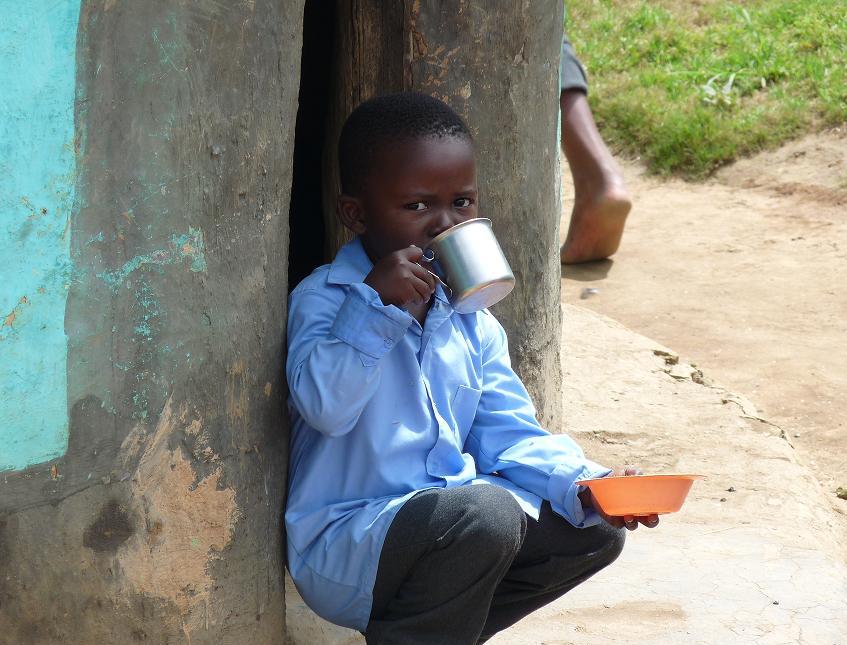Food security in South Africa is more elusive than it may appear. Food security means knowing where your next meal is coming from. It means not having to worry about whether your children will get sick because they don't have the right foods. Twenty years ago, most food insecure people in the world lived in the poorest nations. Today, on World Food Day, as much as three quarters of poor, food insecure households live in so-called Middle Income Countries like China, India and South Africa.

The South African government estimates that approximately 11 million people in South Africa are food insecure out of a population of 50 million. This is roughly 1 out of every 5 people. Children are particularly affected by food insecurity. More than 20% of children in South Africa suffer from stunting because of poor nutrition.
Although South Africa is a relatively wealthy country compared to many other countries on the African continent, the difficult history of apartheid has created a situation of extreme inequality. While some people can afford to eat in expensive restaurants, many others – often living just a few miles away – don’t know where their children’s next meal is coming from.
Rural South African families suffer the most. 70% of all poor people in South Africa live in rural communities. Most of them have a little bit of land and try to grow some food but their farming activities rarely meet even their basic food needs. These are the people Heifer International South Africa helps. Through improved agricultural production on a small scale, they can improve the food their families eat and produce a little bit extra to sell.
Over the past 12 years, Heifer International South Africa has seen the Heifer model work over and over again in South Africa. Julia Ngwana used to beg for work at her daughters’ school to be able to feed her family. Since joining Heifer’s Saambandou Project, she has been able not only to provide healthy food but also to send her youngest daughter, Dakalo, to university.
Mr Albert Makhohliso’s goat and vegetable production finally made it possible, at age 65, to earn enough income to support his sons’ education, after years of unemployment.
Mrs Nuleka Tinga, a single mother supporting 5 children and 4 grandchildren said, “It changed our lives for the better [when] I was given cows. I managed to feed my family and provide for them through the assistance of Heifer. I’m very grateful. Heifer helped me and my family very much; I was motivated to start my own homestead garden so that I could get nutrients from vegetables and sell them as well.” Mrs Tinga’s cow didn’t only help her family. As soon as her cow produced a female calf, she passed on (donated) the calf to another family, so that they, too, could enjoy the benefits. Mrs Tinga also passed on in June 2011.
South Africa’s thriving economy excludes people like Albert, Julia and Nuleka. No matter how hard they work, they simply do not have the skills, knowledge and resources to access the formal economy on their own. Through Heifer International South Africa’s projects, these poor, rural families can finally take part in economic development and benefit through increased production, earning an income and finally achieving regular access to healthy, tasty food for themselves and their families.
This World Food Day, support the work of Heifer to help make food security in South Africa a more attainable reality.